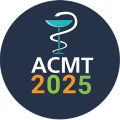

ACMT Symposium: Harm Reduction in the Management of SUD
April 3, 2025
Fairmont Hotel
Vancouver, Canada
#ACMT2025
Important Dates
Early-Bird Registration Deadline
February 21, 2025
AACT Poison Symposium
April 2, 2025
ACMT Harm Reduction Symposium
April 3, 2025
Occupational & Environmental Tox Boot Camp
April 3, 2025
#ACMT2025 Main Conference
April 4-6, 2025
ACMT Symposium: Harm Reduction in the Management of Substance Use Disorders (SUD)
Join the American College of Medical Toxicology (ACMT) on Thursday, April 3, 2025 for the ACMT Symposium: Harm Reduction in the Management of SUD at the Fairmont Hotel in Vancouver, Canada.
Harm reduction has become a key tool in managing substance use disorders (SUD), yet remains loosely defined. It encompasses various measures, including needle exchanges, naloxone distribution, safe consumption sites, and fentanyl test strips. While needle exchange programs have proven effective in reducing infections from intravenous drug use, the impact of other harm reduction strategies is harder to quantify.
Support for harm reduction varies among professionals and the recovery community, with its success depending on when and where the tools are used, the methods chosen, and the combination with other treatments. Different settings—emergency departments, ICUs, or outpatient clinics—may require distinct approaches.
Vancouver’s pioneering leadership in harm reduction makes it an ideal location for this full-day in-person symposium, which will explore harm reduction in detail, presenting the latest evidence and examining its application in special populations, healthcare settings, and recovery stages. Topics include integrating harm reduction with SUD medications and substance use education, inpatient high-dose methadone titration, and a case-based panel discussion on “Lived Experience.” The symposium will appeal to a wide range of professionals in medicine, including those in family medicine, emergency medicine, medical toxicology, addiction medicine, and beyond.
Learning Objectives:
- Analyze the evidence surrounding various harm reduction strategies in the management of substance use disorders, with a focus on their effectiveness across different settings and populations.
- Evaluate the role of harm reduction tools at different stages of the recovery process and identify how they can be integrated with other treatment modalities to optimize patient outcomes.
- Discuss the ethical and practical considerations of harm reduction practices, including the perspectives of healthcare providers, patients, and the broader recovery community.
Continuing Education: Continuing Medical Education (CME), Continuing Pharmacy Education (CPE) and Continuing Nursing Education (CNE) credits are available for this activity. It is expected that learners will receive up to 6.00 credits for learning and change.
Keynote Speakers

Daniel Ciccarone, MD MPH
Dr. Daniel Ciccarone is the Justine Miner Professor of Addiction Medicine in the Department of Family & Community Medicine at the University of California, San Francisco. A specialist in Family Medicine and Addiction Medicine, Dr. Ciccarone has served as principal or co-investigator on numerous NIH-funded public health research projects. He currently leads the Heroin in Transition study, a multidisciplinary effort employing ethnographic, economic, and statistical modeling to explore the rise in heroin use, the growing variety of heroin source-forms, and the impact of illicitly manufactured synthetic opioids, such as fentanyls, on opioid-related mortality and morbidity. His research has been widely published in leading journals, including JAMA, NEJM, AJPH, IJDP, and PLoS Medicine. Additionally, Dr. Ciccarone serves as Associate Editor for the International Journal of Drug Policy and recently edited a special issue on the “triple wave crisis” of opioids, heroin, and fentanyl in the U.S.

Patricia Daly, MD
Dr. Patricia Daly is the Vice President, Public Health and Chief Medical Health Officer for Vancouver Coastal Health and a Clinical Professor in the School of Population and Public Health at the University of British Columbia. As a public health physician, she focuses on improving population health through prevention, health promotion, communicable disease control, environmental health, and public health surveillance. Dr. Daly earned her medical degree from the University of Toronto in 1985 and worked as a family and emergency physician before completing specialty training at McGill University and the University of Toronto, earning a fellowship in Community Medicine in 1992. After moving to Vancouver in 1993, she served at the BC Centre for Disease Control and later at the Vancouver/Richmond Health Board. Since the formation of Vancouver Coastal Health in 2001, she has continued to lead communicable disease control efforts, assuming her current role in 2007. In addition to her leadership duties, Dr. Daly consults with health professionals, advises the public on key health issues, and teaches medical students and residents at UBC.

Guy Felicella
Guy Felicella, raised in a middle-class home in British Columbia, fell into addiction at a young age due to trauma, undiagnosed ADHD, and struggles at home and school. He spent 30 years trapped in cycles of gangs, addiction, treatment, and jail, including two decades living homeless in Vancouver’s Downtown Eastside, surviving the HIV/AIDS crisis, severe infections, and six overdoses. Now with over a decade of sobriety, Guy lives with his wife and three children and is a passionate advocate for harm reduction, recovery, and ending addiction stigma. A sought-after international speaker, he shares his story at conferences, schools, and TEDx Talks, inspiring hope and educating communities on the importance of comprehensive care.
Agenda
All times listed in local, Pacific Time. Download the live event agenda.
| 7:00 AM – 9:00 AM | Optional Fieldtrip: Insite, Supervised Injection Site Those who register will be transported by charter bus from the conference hotel to Insite for this unique opportunity to witness harm reduction practices firsthand and explore the impact of North America’s first supervised injection site on the local community. | Purchase ticket Cost: $40 This opportunity is limited to #ACMT2025 Harm Reduction Symposium registrants only, and there are only 25 spots available on the tour, so be sure to sign up early! |
| 9:45 AM – 10:00 AM | Welcome & Opening Remarks | |
| 10:00 AM – 11:00 AM | Donovan Lecture | On the Streets with Evolving Polysubstance Use — The Rise of ‘Fentanyl-Plus’ and Its Impact on Mortality, Morbidity, and Harm Reduction This lectureship is supported by the Medical Toxicology Foundation through the Ward and Ryan Donovan Memorial Fund. For more info, please visit: www.acmt.net/donovan-lectureship | Daniel Ciccarone, MD MPH, Justine Miner Prof of Addiction Medicine, Family and Community Medicine, Univ of California San Francisco |
| 11:00 AM – 12:00 PM | Politics and History of Harm Reduction in Vancouver, Successes & Challenges | Patricia Daly, MD, Chief Medical Health Officer, Vancouver Coastal Health; Clinical Professor, School of Population and Public Health, Faculty of Medicine at the University of British Columbia, Vancouver, Canada |
| 12:00 PM – 1:15 PM | Break (75 min) | |
| 1:15 PM – 2:00 PM | Lived Experience in Action: Harm Reduction and Recovery in Vancouver’s Downtown Eastside | Guy Felicella, International Public Speaker, Drug Policy Advocate, Vancouver |
| 2:00 PM – 2:45 PM | Voices of Experience: A Discussion on Living and Practicing Harm Reduction | Moderator: Leslie Dye, MD FACMT FASAM, Medical Director, OneFifteen; Clinical Professor, Department of Emergency Medicine, Boonshoft School of Medicine, Wright State University, Dayton, OH Panelists: Charlene Burmeister, Harm Reduction Worker, British Columbia Centre for Disease Control (BCCDC) Daniel Ciccarone, MD MPH, Justine Miner Professor of Addiction Medicine, Family and Community Medicine, UCSF, San Francisco, CA Patricia Daly, MD, Chief Medical Health Officer, Vancouver Coastal Health; Clinical Professor, School of Population and Public Health, Faculty of Medicine at the University of British Columbia, Vancouver, Canada Guy Felicella, International Public Speaker, Drug Policy Advocate, Vancouver |
| 2:45 PM – 3:30 PM | Integrating Harm Reduction with Prevention, Treatment, and Personal Accountability: Saving Lives Without Creating Pill Mills 2.0 | Leslie Dye, MD FACMT FASAM, Medical Director, OneFifteen; Clinical Professor, Department of Emergency Medicine, Boonshoft School of Medicine, Wright State University, Dayton, OH |
| 3:30 PM – 4:00 PM | Rapid Inpatient Methadone Initiations in the Fentanyl Era | Robert Cole Pueringer, MD, Medical Toxicologist and Addiction Medicine Specialist, Essentia Health |
| 4:00 PM – 4:15 PM | Break (15 min) | |
| 4:15 PM – 5:00 PM | Integrating Harm Reduction Approaches in Hospital Care: Inpatient Substance Use Policies | Moderator: Anthony Spadaro, MD, Fellow-in-Training, Rutgers New Jersey Medical School Panelists: Gillian Beauchamp, MD, FACMT, FASAM, Program Director, Medical Toxicology Fellowship; Associate Professor, Lehigh Valley Health Network; USF Morsani College of Medicine, Allentown, PA Evan Schwarz, MD, FACMT, Associate Professor of Emergency Medicine, University of California, Los Angeles, CA |
| 5:00 PM – 5:45 PM | Timing is Everything: Harm Reduction for Special Populations — An Interactive Case-Based Discussion of Who, When, and Where | Moderator: Ashley Haynes, MD FACEP, Medical Toxicologist, Addiction Medicine Specialist, Veterans Health Administration Panelists: JoAn Laes, MD, FACMT, FASAM, Abbott Northwestern Hospital, Allina Health, Minneapolis, MN Timothy J. Wiegand, MD FACMT DFASAM, Director of Toxicology and of the Toxicology Consult Service, University of Rochester Medical Center, Rochester, NY |
| 5:45 PM – 6:00 PM | Closing Remarks |
